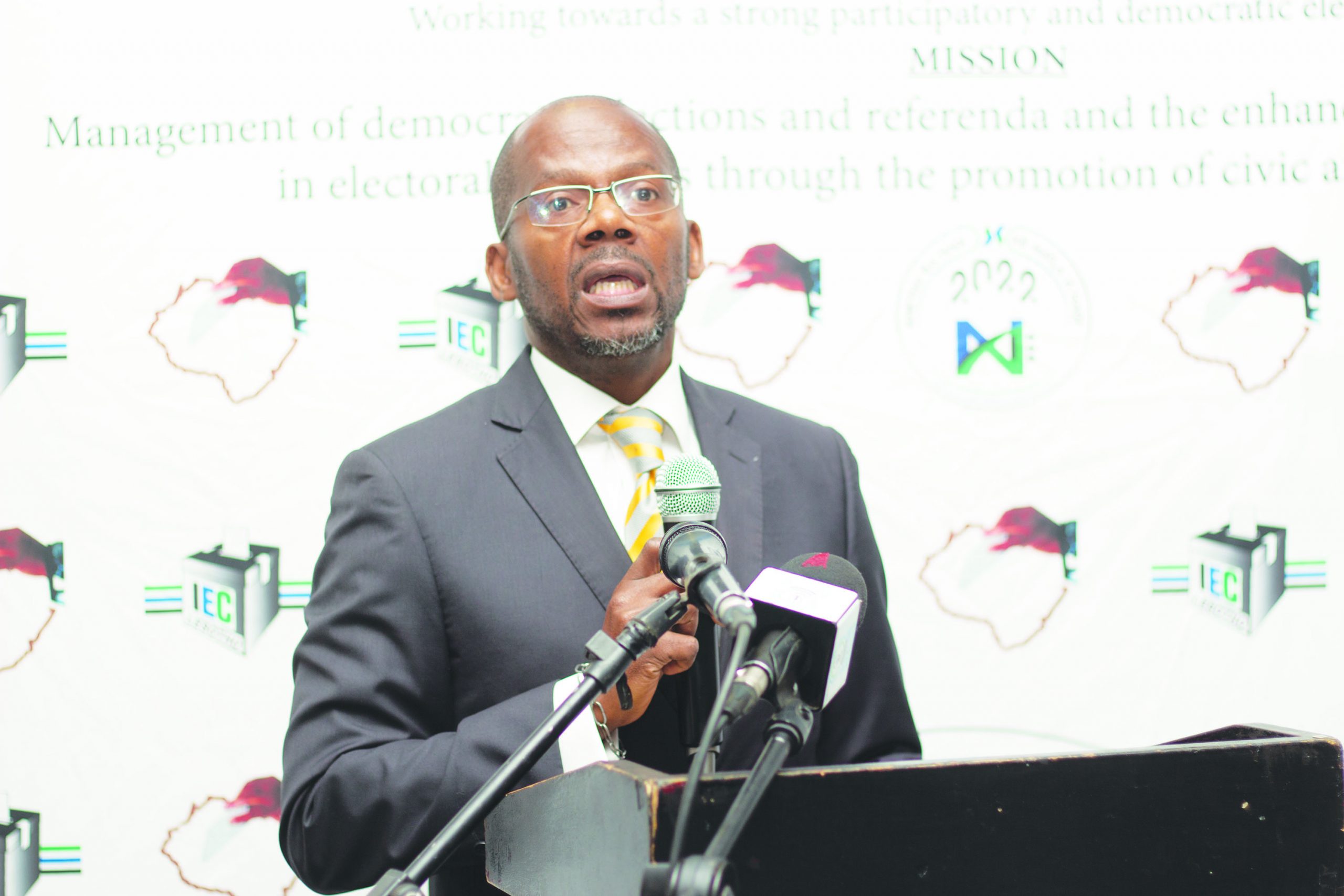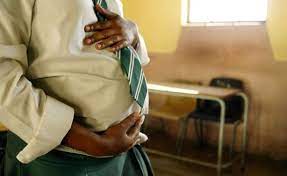Meet Chief Kente: Man who actively encourages contraception
Ntsoaki Motaung
Many men still have the most moral opposition to contraception.
Not men only are opposed to contraception, even some churches are not in favour of providing contraceptives to women reason being that birth control is a sin equivalent to abortion.
That is why in many villages and households across the country, birth control is still taboo.
But the chief of Tlokoeng, Botsola in Libibing – a community in Mokhotlong – Nakeli Kente, encourages his villagers to visit the clinic for their family planning services and information.
Since 2019, Kente has been giving a village health worker a slot during community gatherings to teach the villagers about contraceptives.
He wants villagers who are well-informed and knowledgeable about various types of birth control methods so that they can make informed decisions.
Chief Kente stated that he does not only allow village health workers to teach the community about contraceptives but also invites other health professionals to talk with villagers about an array of health issues.
He said he has realized that the community is interested in the information provided by the village health workers.
He also indicated that despite that there was no study conducted, he has observed a change in the rate at which women have babies in his village.
“They no longer have babies in huge numbers or siblings with a few months apart,†Kente said during a meeting with journalists organized by the United Population Fund (UNFPA).
UNFPA travelled to Mokhotlong with journalists last week to gather stories to commemorate World Contraception Day which is celebrated on September 26, every year all around the world.
Khotso Mpesi, a villager, also testified that the chief’s efforts have helped the villagers plan their families better and avoid having many children.
Mpesi told journalists that “it is a challenge now to have food and clothes and it is even worse when you have many children. Feeding and clothing many children poses a burden so much that some children may be given up to herd animals just to generate income for the family.â€
He further indicated that contraceptives help families and women to decide how many children they want and have them in an acceptable and convenient spacing.
Maipato*, 35, from Libibing in Mokhotlong said Sayana Press injection is more comfortable and convenient to use.
Since she started using this hormonal birth control, she said she had not experienced any side effects.
A woman can inject herself with this product at home or with the help of a friend or family member.
“That is why I think it is convenient, I can take it home and inject myself without having to go to the clinic regularly,†she said.
It is an injection, with a very small needle, that women can give to themselves to prevent pregnancies for three months.
A woman using Sayana Press will need a new injection every three months, a total of four injections every year.
But Maipato is pregnant now.
“I am not pregnant because the injection did not work but because I wanted to have a baby,†she said.
“I did not struggle to conceive or have to wait sometime before I could get pregnant unlike other methods that one has to wait until the medicine is out of their system,†she added.
She indicated that her husband is supportive of her using contraceptives.
“I recommend contraceptives to all women because they assist in family planning and reduce unwanted pregnancies,†she said.
‘Masetima Nkere, a village health worker of Ha Nepo, said the women from her village use contraceptives and prefer those that take long before renewal, like Depo, because their health facility is far.
Another village health worker from Mapholaneng, ‘Maitumeleng Lenepa, also said that women from her village do use and favour contraceptives.
Lenepa also mentioned that from next month, October, she will start distributing family planning pills to the villagers who need them.
Her colleagues have already started distributing. This is done so that the communities can get contraceptives conveniently, especially those who live very far from the health facility.
According to the UNFPA’s sexual and reproductive health and rights coordinator, Blandina Motaung, the unmet need for family planning is at 18 percent countrywide, 21 percent in rural areas and 25 percent in Mokhotlong, the highest of all districts.
“Sayana Press is targeted at women who live in places very far from health facilities so that they may help themselves at home, thus cutting their long trips to health facilities for birth control,†Motaung held forth.
She indicated that it is UNFPA’s responsibility to see that everyone accesses family planning.
UNFA supports family planning by ensuring a steady, reliable supply of quality contraceptives, strengthening national health systems, advocating for policies supportive of family planning and gathering data to support this work.
To commemorate World Contraception Day in Lesotho this year, UNFPA organised local journalists who regularly cover sexual and reproductive health and rights stories to undertake a field visit to Mokhotlong where the first cohort of village health workers was trained on the newly introduced family planning method, self-injection depo (Sayanna Press).
Sayanna Press was introduced in September 2019.
The purpose of the field trip was to help journalists access and interview the trained village health workers and clients in a bid to continue advocacy for the use of this FP method.
Mokhotlong district has one of the highest rates of unmet need for family planning in the country, at 25 per cent, compared to 18 per cent nationally. It also has the lowest contraceptive prevalence rate (CPR), at 48 per cent.
This leads to high rates of unplanned pregnancies, school drop-out, child marriage, teenage pregnancy, unsafe abortion and maternal deaths.
World Contraception Day this year focused on the supplies UNFPA delivers to serve women and girls’ sexual and reproductive health needs.
This was done through a campaign – It’s a match! – a campaign that takes educational content about contraception into digital conversations. Facts about contraceptive protection via text messages and online profiles are presented in engaging animations and visual content.
Summary
- He also indicated that despite that there was no study conducted, he has observed a change in the rate at which women have babies in his village.
- “That is why I think it is convenient, I can take it home and inject myself without having to go to the clinic regularly,†she said.
- ‘Masetima Nkere, a village health worker of Ha Nepo, said the women from her village use contraceptives and prefer those that take long before renewal, like Depo, because their health facility is far.

Your Trusted Source for News and Insights in Lesotho!
At Newsday Media, we are passionate about delivering accurate, timely, and engaging news and multimedia content to our diverse audience. Founded with the vision of revolutionizing the media landscape in Lesotho, we have grown into a leading hybrid media company that blends traditional journalism with innovative digital platforms.








